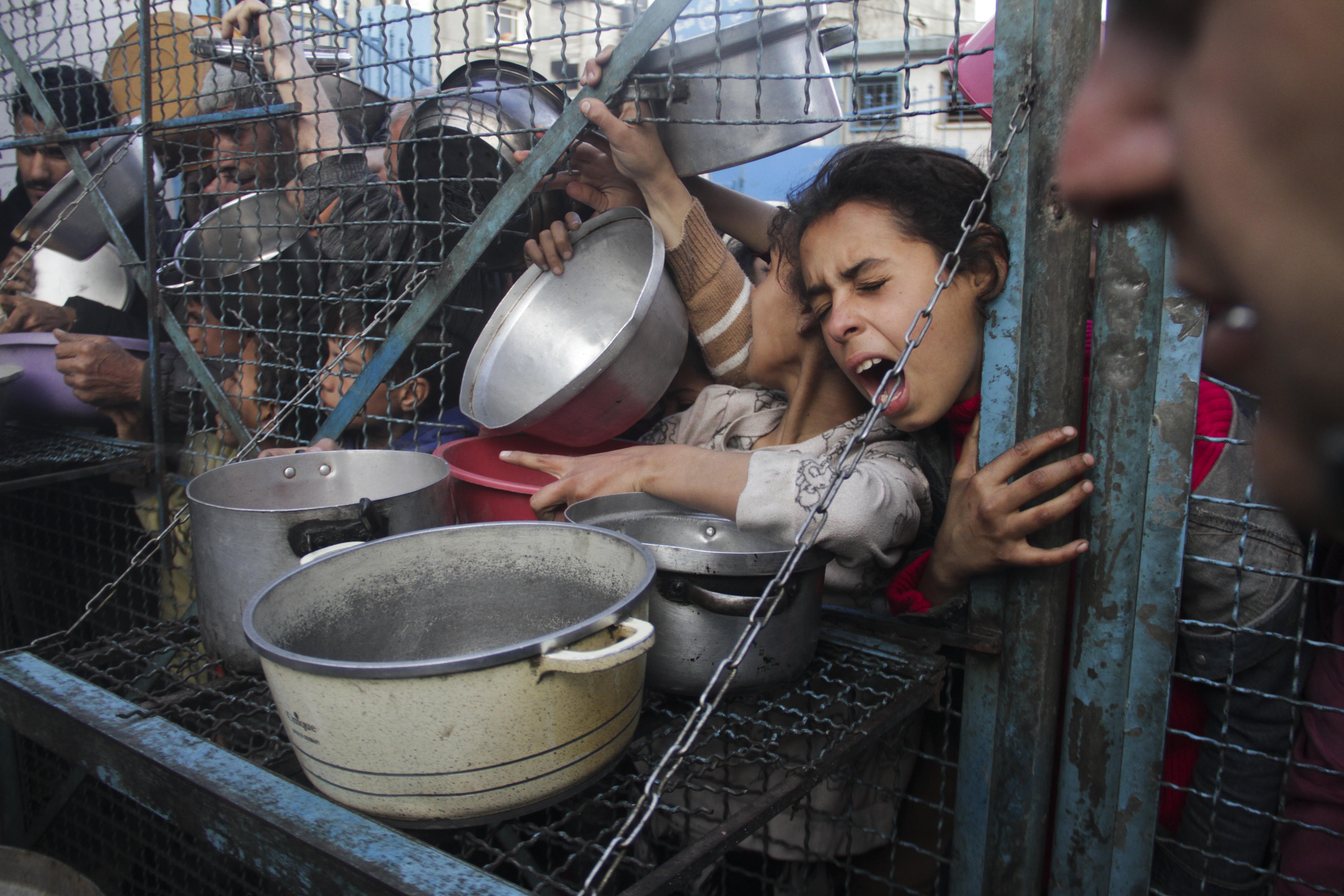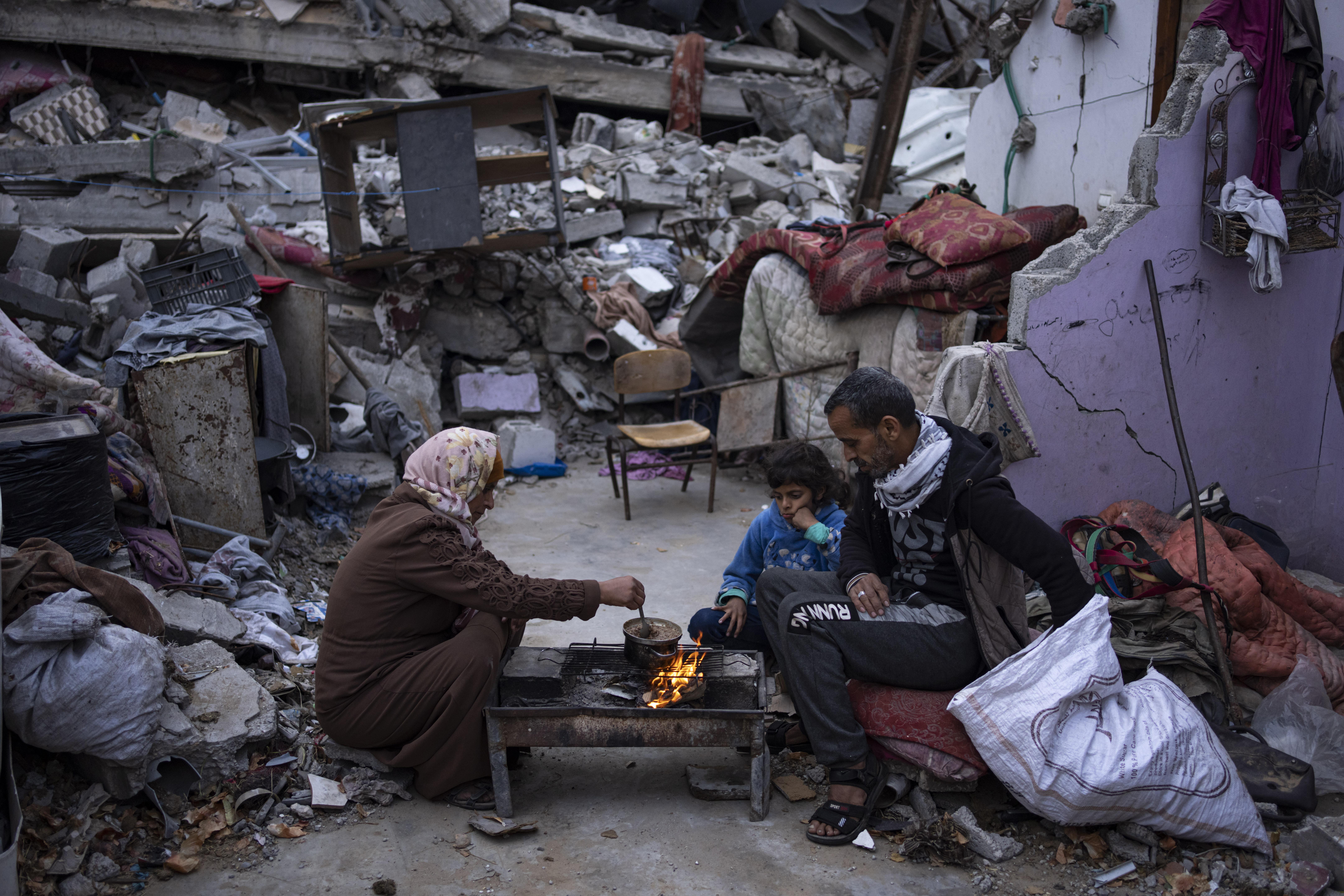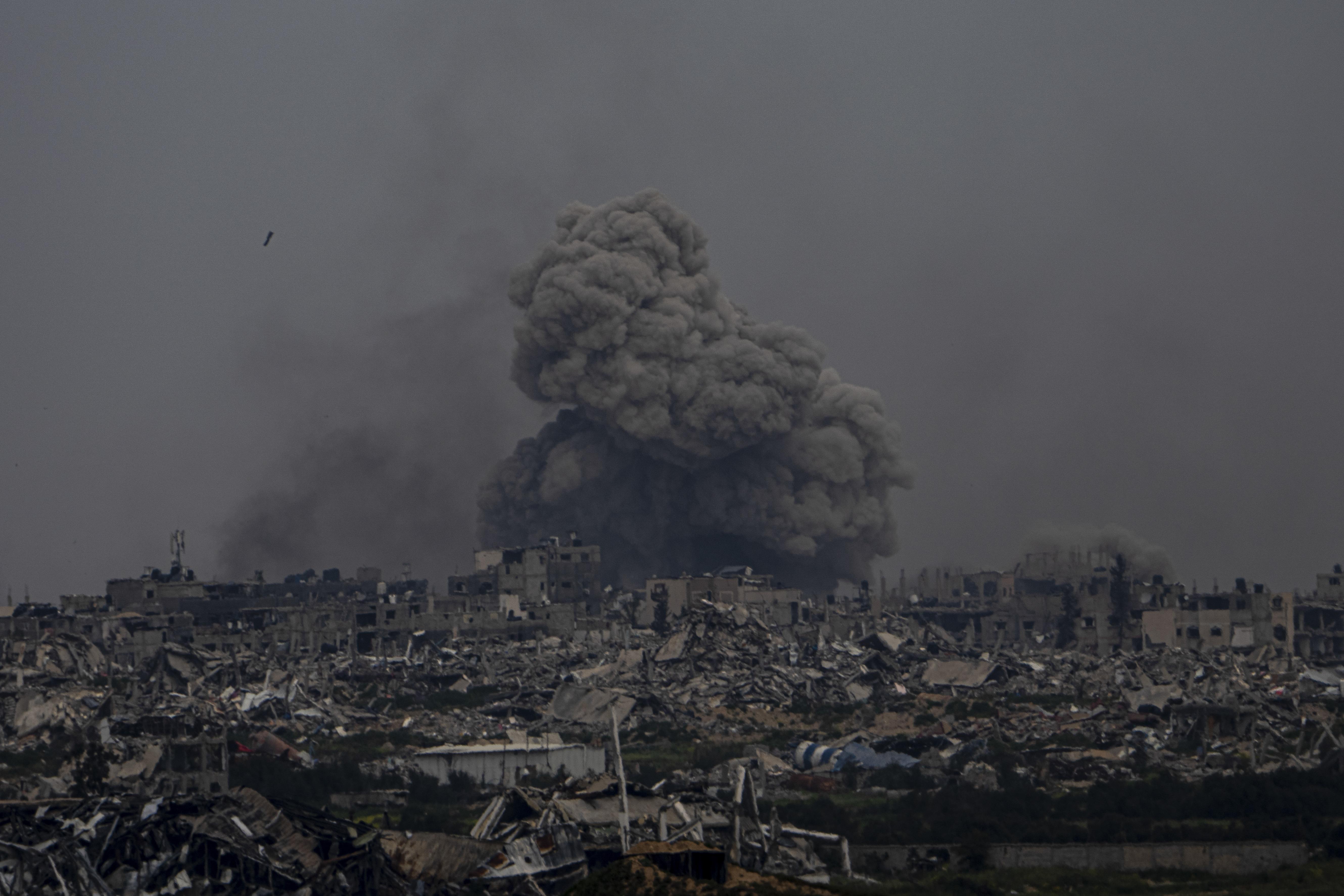 Palestinians line up to receive free meals at Jabaliya refugee camp in the Gaza Strip on March 18, 2024. (PHOTO / AP)
Palestinians line up to receive free meals at Jabaliya refugee camp in the Gaza Strip on March 18, 2024. (PHOTO / AP)
Multiple international humanitarian agencies have warned of looming catastrophic famine and food insecurity in Gaza amid slow aid delivery, underscoring the need for unimpeded critical supplies through land routes as Israel’s retaliatory bombardment continued.
United Nations Secretary-General António Guterres said outside the Security Council in New York on March 18 that Palestinians in Gaza were enduring “horrifying levels of hunger and suffering”.
United Nations Secretary-General António Guterres called on the Israeli authorities to ensure complete and unfettered access for humanitarian goods throughout Gaza and for the international community to fully support the UN’s humanitarian efforts
He called on the Israeli authorities to ensure complete and unfettered access for humanitarian goods throughout Gaza and for the international community to fully support the UN’s humanitarian efforts.
According to the Integrated Food Security Phase Classification (IPC) report released on March 18, its acute food insecurity analysis conducted in December 2023 warned of a risk that famine may occur by the end of May if hostilities continued. The analysis also noted that half of the population of the Gaza Strip, or 1.11 million people, is expected to face catastrophic conditions, the most severe level in the IPC Acute Food Insecurity scale.
ALSO READ: Israel army seizes Al-Shifa Hospital, Gaza toll at 31,726
Guterres described the IPC report as an "appalling indictment of conditions on the ground for civilians".
Tedros Adhanom Ghebreyesus, director-general of the World Health Organization, said on March 18 that before the crisis, there “was enough food in Gaza to feed the population”.
“Malnutrition was a rare occurrence. Now, people are dying, and many more are sick. Over a million people are expected to face catastrophic hunger unless significantly more food is allowed to enter Gaza,” he said.
High Representative of the European Union for Foreign Affairs and Security Policy Josep Borrell said that Gaza “was before the war the greatest open-air prison”.
“Today, it is the greatest open-air graveyard,” he said on March 18, and hoped that the EU ministers would discuss and review the bloc’s joint position on the situation.
 Members of the Al-Rabaya family break their fast during the Muslim holy month of Ramadan outside their destroyed home by the Israeli airstrikes in Rafah, Gaza Strip, March 18, 2024. (PHOTO / AP)
Members of the Al-Rabaya family break their fast during the Muslim holy month of Ramadan outside their destroyed home by the Israeli airstrikes in Rafah, Gaza Strip, March 18, 2024. (PHOTO / AP)
Other organizations including Oxfam said in a statement that “we cannot wait for a declaration of famine to stop these appalling atrocities and massively scale up humanitarian operations”.
The statement also said that Israel “cannot starve and bomb Gaza into a solution” as it called for an immediate permanent ceasefire and a political solution, including “ending the occupation and release of all hostages and illegally held prisoners”.
Philippe Lazzarini, commissioner-general of the United Nations Relief and Works Agency for Palestine Refugees in the Near East, lamented on his X account on March 18 that Israel authorities had denied his entry into Gaza.
“This man-made starvation under our watch is a stain on our collective humanity ….Famine can be averted with political will,” said Lazzarini.
On March 12, Spanish vessel Open Arms left Cyprus with a United Arab Emirates-funded shipment of some 200 tons of flour, protein and rice. The cargo, organized by the United States charity World Central Kitchen, offloaded in Gaza, the Arab News reported.
ALSO READ: UNICEF: Over 13,000 children killed in Gaza in Israel offensive
The US, since the start of March, and with some help from Jordanian forces, had also conducted the airdrops of humanitarian aid into Gaza, leading to unfortunate deaths of Gaza people seeking aids and criticisms as promotional show.
But on March 14, 25 nongovernmental organizations called on governments to prioritize ceasefire and ground-based humanitarian aid, saying that the states “cannot hide behind airdrops and efforts to open a maritime corridor to create the illusion that they are doing enough to support the needs in Gaza”.
They said the primary responsibility was to prevent atrocities from unfolding.
 Smoke and explosions rise inside the Gaza Strip, as seen from southern Israel, March 17, 2024. (PHOTO / AP)
Smoke and explosions rise inside the Gaza Strip, as seen from southern Israel, March 17, 2024. (PHOTO / AP)
“Even if trucks are allowed to enter, the number per day is minimal, insufficient to meet the needs of 2.3 million Gaza residents. From South to North Gaza, aid truck convoys were also blocked by Israel so that aid workers could not distribute the food. Israel also carried out attacks on aid workers and humanitarian facilities, including the UN agency,” Dina Yulianti Sulaeman, director of the Indonesia Center for Middle East Studies, told China Daily.
“The only solution is to open the land borders so that trucks can bring as much help as possible,” she added.


